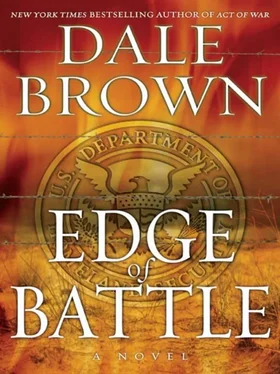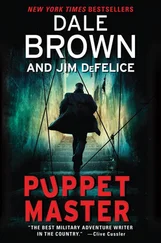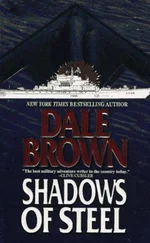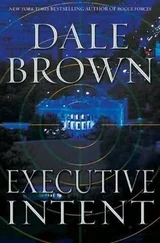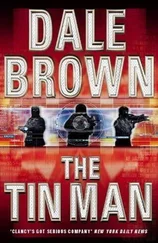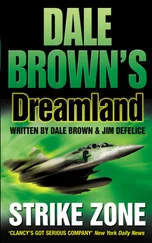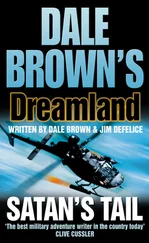“‘Giving up your freedom in order to ensure safety makes you neither free nor safe.’ Benjamin Franklin,” Lemke quoted. “Is that where we’re headed now, Sergeant Major? Plant microscopic tattletales on innocent men, women, and children in order to weed out the undesirables—is that truly what we want to do?”
“Mr. Secretary, Task Force TALON is responding to my request for proposals on the issues of border security,” the National Security Adviser said. “Our intention is not to address every legal, moral, or civil rights question that may arise—I don’t believe we’d ever get anything accomplished if we canceled every project or innovation because it might have a civil rights issue.
“Launching unmanned aerial spy planes and deploying forty thousand troops to patrol the borders wouldn’t be enough, even if they were one hundred percent effective—we need some way to locate illegal persons who are already in the United States, those who slip past our security, or those whose status changes while in the country,” Jefferson went on. “Regular identification methods can’t work because they are too easily forged and it assumes your subject comes before you willingly to submit his or her ID, if they even have any. Of course it would be better to use the NIS system in illegal persons, but that’s unworkable: a guilty person doesn’t stay guilty, and a guilty person may not cooperate with authorities, presenting the prospect of forcing a person to submit to the NIS system as part of release, probation, or parole.”
“This is sounding more and more like ‘Big Brother’ by the moment,” Lemke said. He turned to the President. “Sir, are you sure you want to travel down this path? Civil rights groups are going to scream bloody murder about this obtrusive electronic ID program.”
“Jeffrey, we have been wrestling with these legal and moral questions ever since Nine-Eleven: whether the government can install more obtrusive security and identification systems on the law-abiding public in order to try to protect the public against deadly attacks,” the President responded. “How much is too much? The people are entitled to life, liberty, and the pursuit of happiness; the government’s responsibility is to do everything possible to ensure they get it. We put up with security, monitoring, and other restrictions to freedom now that would make the framers of the Constitution scream in agony.”
“Then I suggest that you don’t take the next step, sir—don’t make the situation worse by throwing the military into it,” Lemke said. “The Department of Homeland Security already uses thousands of National Guardsmen and Reservists for duties like searching cargo containers assisting both Immigration and Customs Enforcement and the Bureau of Customs and Border Protection; we’ve already absorbed the U.S. Coast Guard, which has primary responsibility for patrolling and safeguarding the coast and ports. We’ve always stopped short of putting the military on the borders because an open and free society shouldn’t have to militarize its borders, especially with friendly neighbors…”
“Our neighbors may be friendly, Jeffrey,” Jefferson said, “but they are not always cooperative. Illegal immigration and undocumented workers are of great benefit to countries like Mexico because they reduce the strain on services in Mexico and bring millions of U.S. dollars into the Mexican economy each year. The Mexican government has done a lot to make sure it is safe to travel back and forth across the borders illegally, if not outright promote illegal immigration.”
The President turned to Director of Customs and Border Protection Abernathy. “Director Abernathy? Your thoughts.”
“Operation Rampart alters the relationship between the United States and Mexico in a very drastic manner, Mr. President,” Abernathy said. “Neighbors should do whatever’s possible to cooperate with one another if a problem develops. Militarizing the border is counterproductive and is in my opinion a downright aggressive posture, along the lines of the East and West German border region during the Cold War. We have the technology to take surveillance, security, and identification to a whole new level of effectiveness—the question is, should we do it, even if it means putting yet another level of government intrusion on our lives?”
The President sat back in his seat and wearily rubbed his eyes. “Before Nine-Eleven, I would have said no—we should be doing everything possible to preserve freedom and privacy. I have always believed in smaller government; I believed some of the laws passed in the angry emotional aftermath of Nine-Eleven went too far. I always believed the guilty have the same rights as the innocent. But then there was Kingman City, San Francisco, Washington, and now Blythe—more examples of how a determined enemy can exploit our freedom to accomplish his deadly goals.
“I’m not going to wait any longer on this, Jeffrey,” the President went on. “I’ve attended more funerals in the past several months than I ever thought possible, and I’m tired of standing up in front of crowds of angry and confused mourners, promising to do something more to stop terrorists from infiltrating our borders and conducting attacks against us.” He took a deep breath before continuing: “I have been President during the three most deadliest terrorist acts ever on U.S. soil, events that make even Nine-Eleven pale in comparison. I was hoping that the danger would have subsided, but I see now it has only intensified. I refuse to sit back and worry about taking away rights while the evil in this world attacks us with abandon.”
President Conrad looked at the others around him, searching their eyes or expressions for any sign of dissent or argument. He found nothing but stone-somber faces and averted eyes. “Let Congress or the courts decide if what we do here this day violates the Constitution we all swore to uphold,” he said. “As the leader of the Executive Branch of our government as well as this nation, which has declared war on terrorism and has vowed to fight it wherever it is found, with whatever weapon we have at our disposal, I will act.
“Gentlemen, the attack on our Border Patrol agents by these highly trained and well-equipped assassins is a warning that our borders are wide open and our country, our government, and our people are vulnerable,” he said. “I mean to do something about it, and I want it done now . I want this program rolling quickly, efficiently, and positively.
“I’m staking my entire political future on this project, and I expect each one of my administrators and commanders to follow through one hundred and ten percent,” the President concluded. “If you can’t do it, I expect your resignations on my desk by the time I get back to Washington. I want total commitment, or you can find work elsewhere. Understood?” There was a muted chorus of “Yes, Mr. President” around the room. “Let’s get it on, folks.”
FIVE MILES SOUTH OF OCATILLO, CALIFORNIA
DAYS LATER
The five-mile gap between the steel border security fences between the Tecate and Mexicali border crossing points had been filled in with a simple fifteen-foot-high chain-link fence, which was laughably easy to climb. The fence was also cut into pieces in many areas, so much so that it was possible to walk through it without getting your clothes dirty or snagged. Messages and flags posted in various towns, villages, roads, and bus stations in Mexico also told the latest news about which parts of the fence were open, which cameras were active or broken, and where recent arrests had been made. Intel on crossing the fence was plentiful and mostly accurate.
Everyone also knew there were motion sensors buried in various places between the border, Route 98, and Interstate 8. The sensors would send a signal to the U.S. Border Patrol stations in San Diego or El Centro, alerting air and ground patrols. The Border Patrol planes had heat-seeking FLIR sensors, which could make out a warm body easily against the rapidly chilling ground at night. But at night the ground patrols took much longer to travel cross-country, if they came at all, so even with a plane up unless you were really unlucky and a patrol was already in the area, you were probably going to make it. Even if a Border Patrol vehicle did show, once the pollos scattered it was tough to round them all up again, so at night the majority of this group of twenty-five illegals crossing the border had a pretty good chance of making it to the interstate highway. A few would always get caught, but most would make it.
Читать дальше
